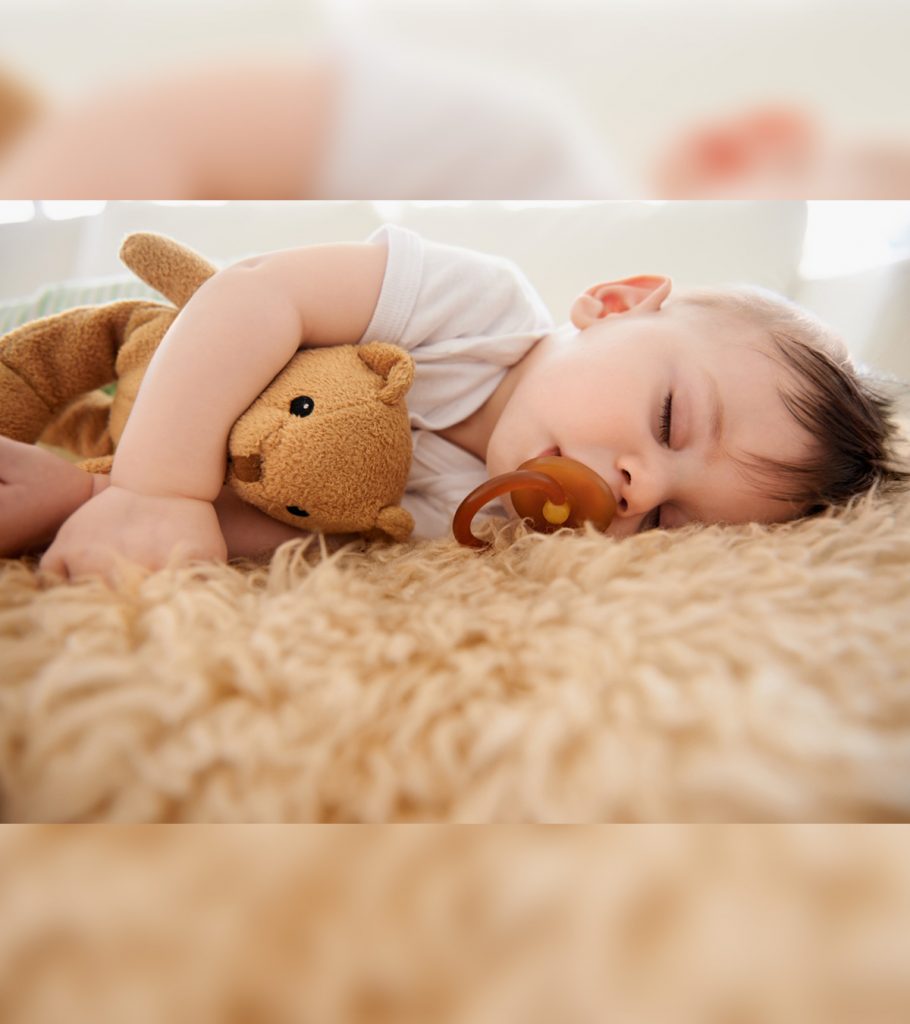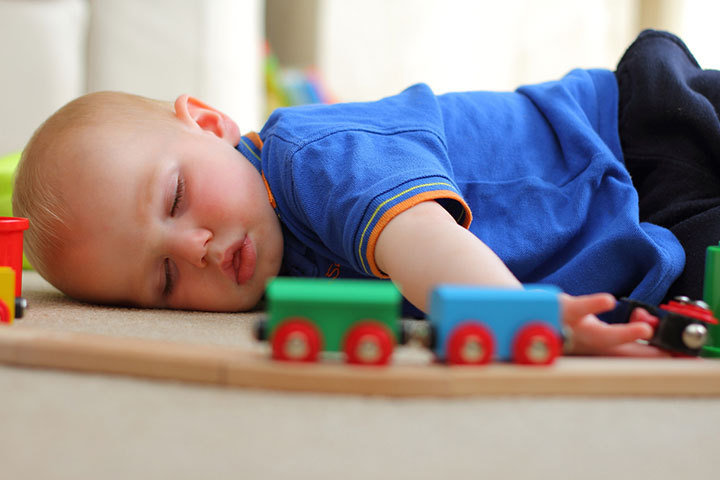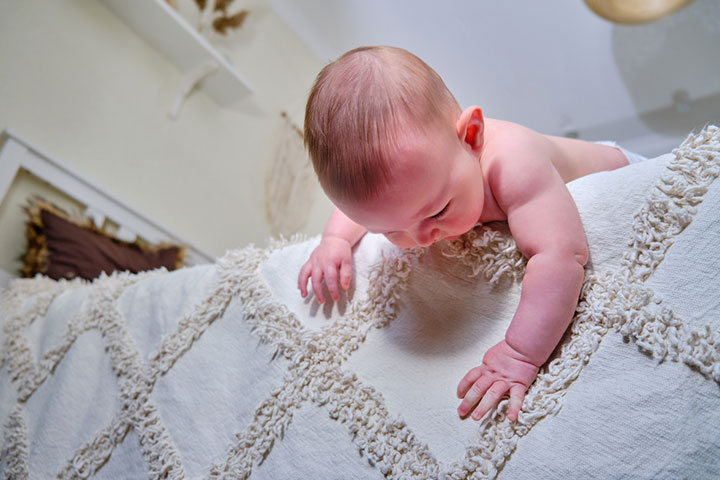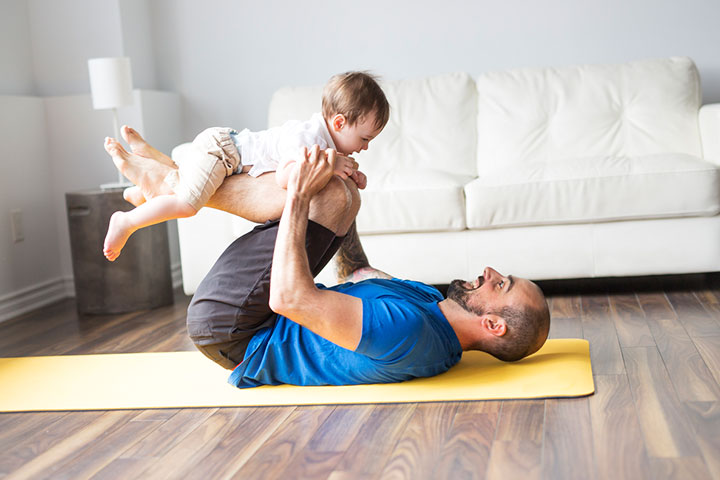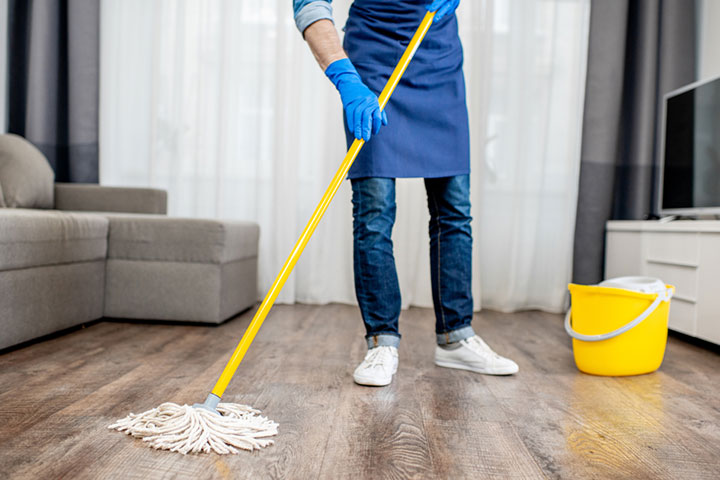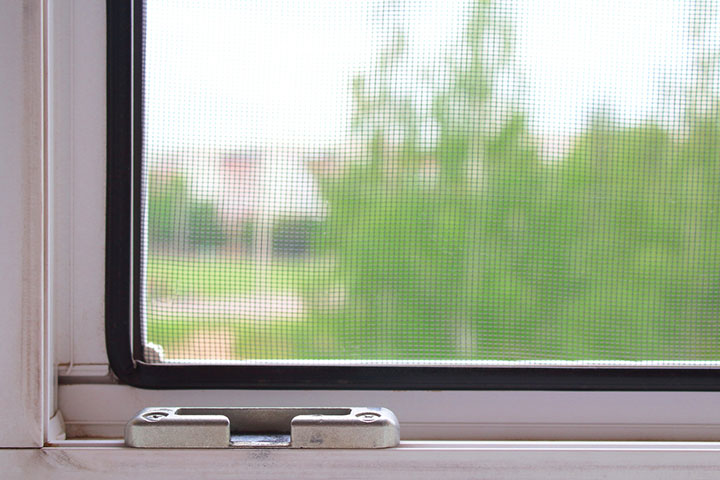If you frequently discover your baby sleeping on the floor or if your baby enjoys spending time on the floor, you may wonder if napping on the floor is safe for your baby and if there are any potential benefits.
Sleeping on the floor is a centuries-old custom still practiced in many cultures. However, you must take some measures if you want to let your baby sleep on the floor.
This post discusses the answers to various concerns that you may have about your infant slumbering on the floor and provides some safety measures.
Is Sleeping On The Floor Safe For Babies?
According to the Canadian Government safety standards, children under one year of age need to sleep on their backs on a firm surface (1). As the floor is a firm surface, you can make your baby sleep on the floor as long as you take all the necessary measures. However, talk to your pediatrician and take their opinion before making the decision.
Yes, letting your baby sleep on the ground means more baby-proofing and extra precautions, but it could all be worth it since the benefits of snoozing on the floor outweigh the risks. Are you wondering what these benefits could be? Read on.
Potential Benefits Of The Baby Sleeping On The Floor
There are a few benefits of a baby sleeping on the floor. However, the ultimate decision to let your baby sleep on the floor depends on you and how your baby reacts to it. Also, it is best to talk to your pediatrician before opting for it. The following are a few benefits of a baby sleeping on the floor.
1. Sleep anytime, anywhere
If your baby likes to sleep on the ground, it is easy to get them to sleep anytime, anywhere. You need not carry expensive bedding or portable cribs. All you need is a simple blanket.
2. Get a good sleep
You can conveniently nurse the baby without the need to move them in and out of the crib or bassinet. This will help you keep those night feeds low-key and also give you a good night’s sleep.
3. Say goodbye to falling
Unlike the crib or bassinet, the floor offers a large space for the baby to sleep freely. If your baby has the habit of rolling over while sleeping, the floor may be the best place for them to sleep, as there is no danger of them falling.
4. Prevent SIDS
In 2020, the Centers for Disease Control and Prevention reported approximately 1,389 mortalities attributed to Sudden Infant Death Syndrome (SIDS). The floor is a firm and flat surface; thus, it is the recommended surface to prevent SIDS in infants (1).
5. Encourage independence
Sleeping on the floor not only averts the dangers of falling and suffocating, but also gives your baby the freedom to get up all by themselves, without your help.
Anne, a mother from the mountains of Montanna, shares about her baby’s nursery setup. She writes, “Elise (her daughter) has been sleeping on her floor bed at night and for naps since she was twelve weeks old. Before that, she slept in a bassinet or with me on the couch. Having a floor bed has really worked out well for our family.” Sharing one of the many benefits of having a floor bed, Anne says, “Elise’s room is upstairs, and when she wakes up from a nap, we can hear her through the ceiling, crawling to either her shelf or her closet! She rarely wakes up crying – we end up going upstairs because we want to see her, not because she needs us (i).”
6. Enjoy more bonding time
Sleeping on the floor is a perfect place for bed-sharing with your baby, as bed-sharing on the cot or crib is not recommended.
To let your baby reap the maximum benefits of sleeping on the floor, you need to make sure the environment is safe. The next section covers the safety precautions you need to take when your baby is sleeping on the floor.
Safety Measures To Take If Your Baby Is Sleeping On The Floor
It is important to take certain precautions to make the floor a suitable place for your baby to sleep. According to Nilong Vyas, a Louisiana-based board-certified pediatrician, and sleep consultant, “There are many benefits to a baby sleeping on the floor, but several precautions must be taken if that is to be the case. First, a baby must sleep on a flat, hard surface, which the floor provides, so an infant can start to sleep there as soon as a parent feels comfortable.
However, once the infant becomes more mobile (as early as 2-4 months of age), treat the room in which they will be sleeping on the floor as a giant crib. All items on the floor, outside of the mattress the infant may be on, must be out of reach of the infant. And especially once the infant starts to crawl, care must be taken so that wires, furniture, and toys are out of the child’s reach.”
Here are some important safety precautions to ensure that your baby sleeps safely on the floor:
- Make sure your baby sleeps on a roll-out bedding or a flat and firm mattress with well-fitted sheets. Avoid placing fluffy pillows or soft mattresses near the baby, as studies suggest that these could lead to suffocation (2).
- If you live in an area with a warm tropical climate, keep the room well-ventilated. Make sure you have a ceiling or hand fan to keep the baby from getting overheated. Also, do not dress your baby in tight-fitting clothes.
- Ensure to sweep and mop the floor every day to keep dust, mites, and insects away from the floor.
- Do not place rugs, carpets, floor mats, beanbags, or cozy pillows near the baby as it might lead to suffocation. Also, carpets and floor mats attract dust and fungus, which could cause allergies in babies.
- Place the baby in a safe spot on the floor, and make sure there are no floor-length drapes or curtains within reach of the child. Also, keep all electric cords and plugs neatly tied to prevent tangling.
- Clear the area of items that can easily get knocked over during the night, especially if the space is limited or if you are co-sleeping with the baby.
- If you live in a mosquito-prone area, ensure all the doors and windows are shut at dawn and dusk. If you wish to use electric coils or mosquito repellants, switch them off before the baby goes into the room.
- Use chemical-free mosquito repellents and put mesh doors or screens on doors and windows. You can also use a customized baby mosquito net until they are old enough to roll over.
4. Does sleeping on the floor increase the risk of babies developing a flat head?
Vyas asserts, “The risk of their heads becoming flat in a crib versus on the floor is equal. I prefer to choose a place where the infant is allowed the safest sleeping environment.”
Baby sleeping on the floor is considered to be safe until and unless you ensure that the floor is clean and you maintain the necessary precautionary measures. There are several benefits of the baby sleeping on the floor, such as the reduced risk of SIDS, encouraging independence, and also reducing the risk of falling and hurting themselves. But you should make sure that the baby is sleeping on a flat mattress and there are no pillows around them to avoid suffocation. Consult the doctor once before making the final decision.
Key Pointers
- Babies can sleep on their back on firm surfaces after consulting a pediatrician.
- Sleeping on the floor allows for sleeping freely, preventing falls and accidental suffocation, and offers the freedom to get up by themselves.
- Clearing the floor and keeping electric cords and plugs tied away from the baby are a few precautions to observe.
